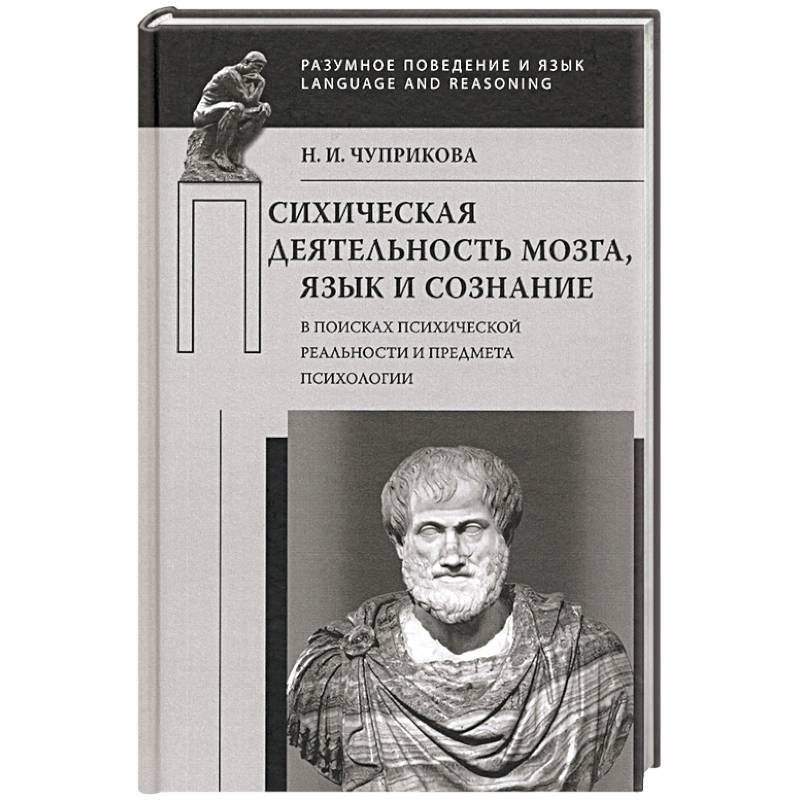The mental activity of the brain. Language and consciousness. In search of mental reality
Please sign in so that we can notify you about a reply
The book substantiates the provision that a psychic reality that psychological science could not gain for a long time is a reflective and regulatory on this basis brain activity. This activity, following F. Scream, can rightfully be considered the mental activity of the brain. It is she who should be recognized as an ontological subject of psychology, different specific sciences in which have different specific subjects of study.
The fundamental difference between the mental activity of the brain and all other biological processes in the body of animals and humans is revealed.
The mental processes of the brain have a dual ideal-material nature. They are ideal in their content, because they embody existing reality outside them. They are material, because from the beginning to the end are spatial-material.
The views of Aristotle and Spinoza, the reflex theory of I. M. Sechenov, the understanding of the psyche as a reflection of reality, the representation of evolutionary epistemology (K. Lorenz), and the determination of the nature of the ideal E. Ilyenkov, are involved in the substantiation of the provisions.
The structure of mental reality is considered as a holistic functional system consisting of 7 main subsystems, its evolutionary sources and development.
The problem of consciousness is discussed. The idea is put forward that consciousness arises when a person, thanks to the language and speech, in the sphere of reflection, in addition to the world around us, is also reflected in the objective content of the psyche of other people and their own psyche.
The ideas of J. Edelman and A. M. Ivanitsky about the physiological mechanisms of consciousness are considered.
The hypothesis of the biochemical nature of the qualitative diversity of mental reality is put forward.
The book is addressed to psychologists, philosophers, researchers of the work of the nervous system and brain
The fundamental difference between the mental activity of the brain and all other biological processes in the body of animals and humans is revealed.
The mental processes of the brain have a dual ideal-material nature. They are ideal in their content, because they embody existing reality outside them. They are material, because from the beginning to the end are spatial-material.
The views of Aristotle and Spinoza, the reflex theory of I. M. Sechenov, the understanding of the psyche as a reflection of reality, the representation of evolutionary epistemology (K. Lorenz), and the determination of the nature of the ideal E. Ilyenkov, are involved in the substantiation of the provisions.
The structure of mental reality is considered as a holistic functional system consisting of 7 main subsystems, its evolutionary sources and development.
The problem of consciousness is discussed. The idea is put forward that consciousness arises when a person, thanks to the language and speech, in the sphere of reflection, in addition to the world around us, is also reflected in the objective content of the psyche of other people and their own psyche.
The ideas of J. Edelman and A. M. Ivanitsky about the physiological mechanisms of consciousness are considered.
The hypothesis of the biochemical nature of the qualitative diversity of mental reality is put forward.
The book is addressed to psychologists, philosophers, researchers of the work of the nervous system and brain
Author:
Author:Chuprikova Natalia Ivanovna
Cover:
Cover:Hard
Category:
- Category:Politics & Social Science
- Category:Psychology
- Category:Reference books
Publication language:
Publication Language:Russian
Paper:
Paper:offset
Series:
Series: Reasonable behavior and language
ISBN:
ISBN:978-5-907290-65-5
No reviews found
